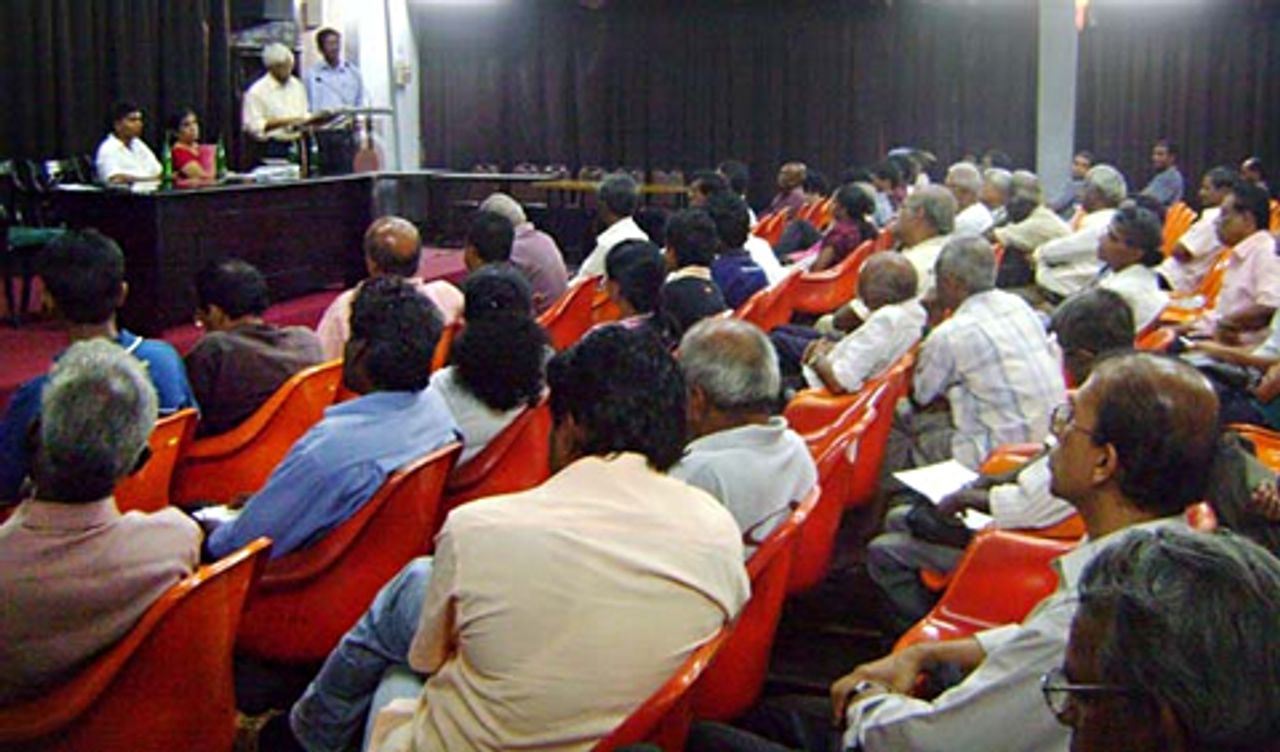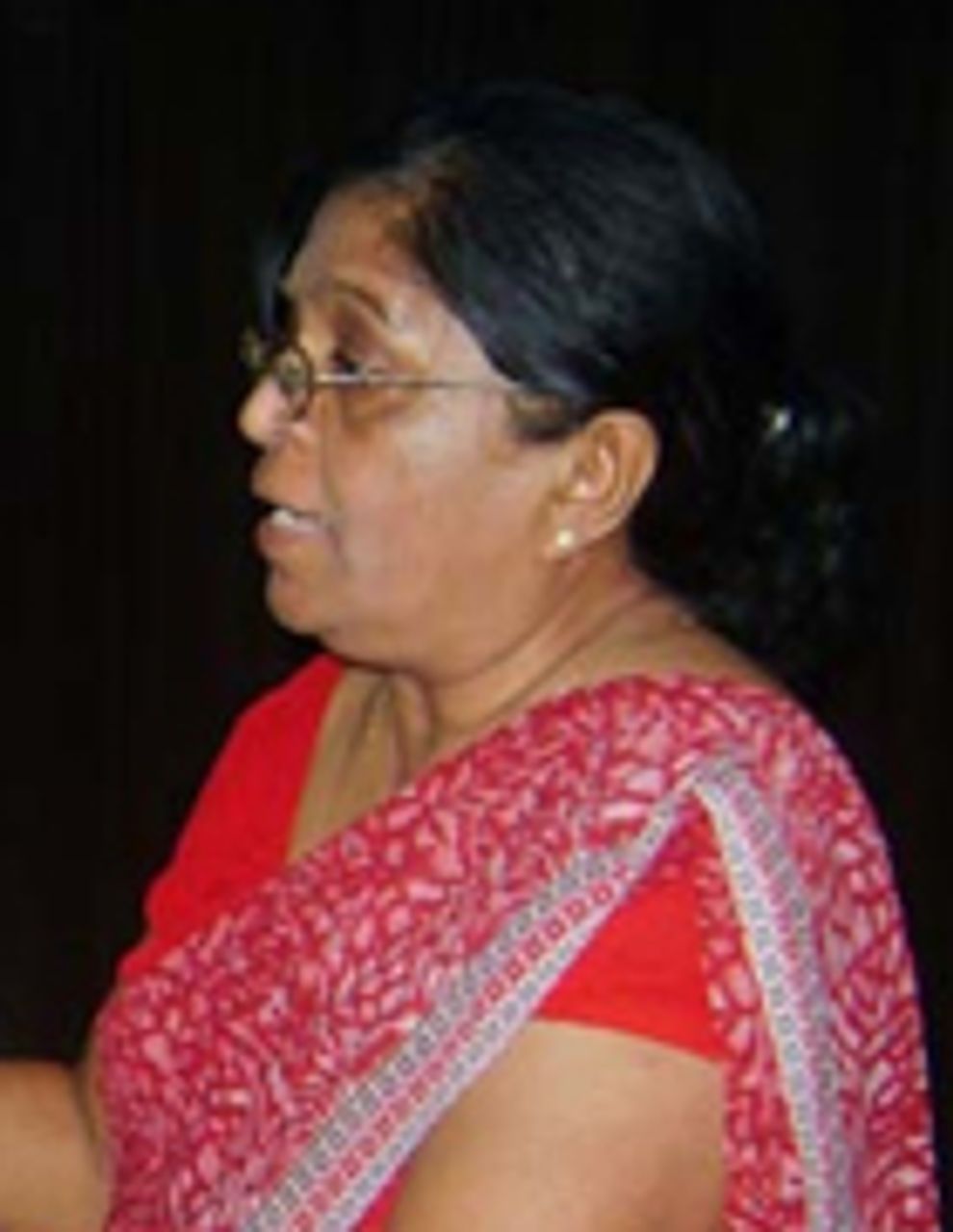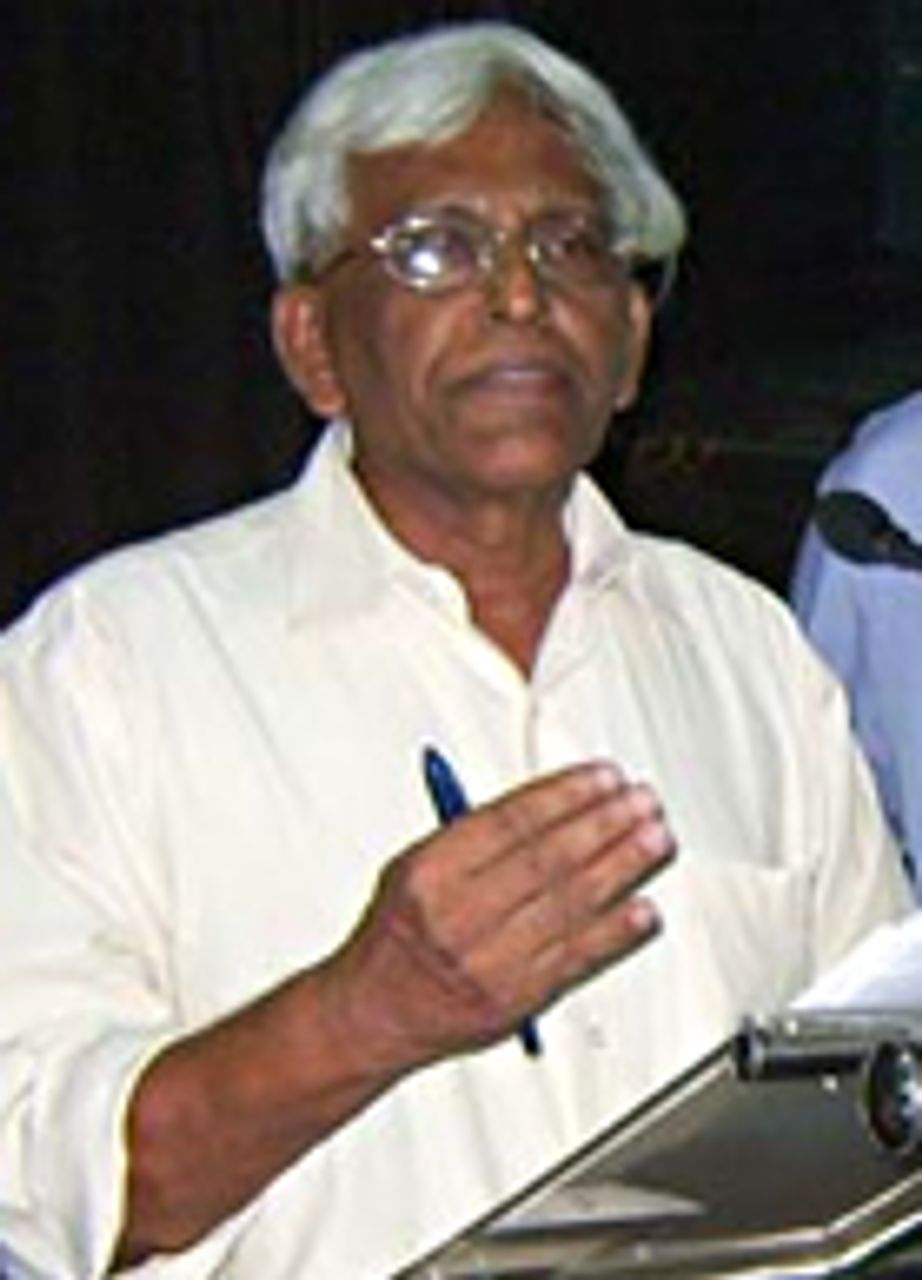The Socialist Equality Party (SEP) and the International Students for Social Equality (ISSE) held a public meeting at the Mahaweli Centre in central Colombo last Friday to discuss the global implications of the revolution in Egypt. A new layer of workers and youth from Colombo, the central plantation districts and rural areas participated in the meeting, along with several artists.
 A section of the audience
A section of the audience
It was the first public meeting held in Sri Lanka by any organisation on the convulsions in Tunisia, Egypt, Libya and other countries in the Middle East and North Africa. SEP and ISSE teams had campaigned at higher education institutions and working class areas in Colombo, distributing articles from the World Socialist Web Site.
 Vilani Peiris
Vilani PeirisOpening the meeting, SEP political committee member Vilani Peiris explained: “After the collapse of the Soviet Union in 1991 there was a wave of bourgeois triumphalism and much talk about the end of the socialism. Some attempted to write off the working class and the class struggle as a thing of the past. However, the Egyptian working class has shown its revolutionary strength and dealt a death blow to such reactionary propaganda.”
Peiris said the global financial crisis had marked a turning point worldwide: “The advanced countries, including the US, bailed out the big banks and corporations while workers are being made to pay the price. This has deepened the social inequality in every country, including Egypt, laying the basis for the eruption of mass struggles.”
Kapila Fernando, ISSE convener in Sri Lanka, said the self-immolation of an unemployed graduate in Tunisia had provoked the uprising that overthrew President Ben Ali. The rebellion rapidly spread to other countries, with unemployed youth in the forefront, along with workers. According to official estimates, 81 million youth throughout the world were unemployed, he said. A million youth would be added to the labour force annually from 2010 to 2015 in South Asia alone, but many would remain jobless.
 K. Ratnayake
K. RatnayakeThe main speaker, K. Ratnayake, a member of the SEP political committee and WSWS International Editorial Board, explained that “the Egyptian revolution and the upheavals across the Middle East demonstrate that the working class internationally is entering into a period of protracted revolutionary struggles.”
Ratnayake noted the significance of the fact that workers in the US state of Wisconsin had mobilised against attacks on living conditions and bargaining rights at the same time that the Middle East struggles were unfolding: “Workers in the US and Europe have come into struggle against their common problems of unemployment, inflation, poverty, the slashing of education and health, and assaults on democratic rights”.
The speaker explained the global processes driving the offensive against the social position of the working class. He referred to the decline of the minimum wage rate in Egypt from 60 percent of gross national income in 1984 to 13 percent in 2007. “The Egyptian national income increased, but it benefited only a tiny few, including President Hosni Mubarak, his cronies and an upper middle class layer. Youth joblessness became intolerably high—25 percent among males and 59 percent among females.
“When the thugs and military mobilised by Mubarak failed to repulse the mass movement, the newly appointed Egyptian vice president, Omar Suleiman, decided to talk to the Muslim Brotherhood and the National Alliance for Change led by Mohammad ElBaradei. They all expressed their support for the military. Suleiman was the intelligence chief and worked closely with the CIA. When the working class started to come to the forefront, the military hierarchy decided that Mubarak should go.”
Ratnayake emphasised that decisive political battles lay ahead. Mubarak had been deposed but the military commanders were seeking to consolidate their power by suppressing the strikes and struggles of workers. The US remained the chief prop of the Egyptian military, as it had been for Mubarak.
The speaker explained that democratic rights could not be won without overthrowing capitalism and establishing a workers’ and farmers’ government on the basis of an international socialist program. “This is the theory of permanent revolution advanced by Leon Trotsky, co-leader of the Russian Revolution, along with Lenin.” Trotsky’s theory guided the successful taking of power by the working class in Russia in October 1917, and this was a basic lesson for the working class in Egypt, Tunisia and internationally.
Ratnayake noted that the Sri Lankan government was nervous about the uprisings. He pointed out that more than one million Sri Lankan workers were employed in the Middle East. The Colombo government, which had friendly ties with the dictatorial regimes in the region, had issued instructions to Sri Lankan workers through its embassies there to stay indoors, stating: “Sri Lanka is not prepared to involve itself in these crisis situations.”
Within Sri Lanka, some newspaper editorials had warned the government of President Mahinda Rajapakse of the dangerous implications of corruption, inflation and unemployment in Sri Lanka. The editorials had expressed concerns that people’s patience was wearing thin.
In conclusion, Ratnayake emphasised that the crucial question was the building of revolutionary leaderships—sections of the International Committee of the Fourth International—in every country. He urged members of the audience to join the SEP.
Members of the audience who spoke to the WSWS after the meeting commented on the similarity of the poor living conditions of the masses and the denial of democratic rights in Egypt and Sri Lanka.
One female worker said: “I’m following the developments in the Middle East with great interest. However, it is difficult to know what exactly is happening. Only Al Jazeera and the WSWS provide a good coverage on what is taking place. I am reading the WSWS with much interest. I’ve already read some of the 2005 Summer School lectures [of the US SEP]. Still there’s great deal to read.
“This [the Egypt revolution] is not a small thing. It is happening in a very important place. Egypt receives the second largest [amount of] US aid in the world. It plays a vital role for US interests in the region. Earlier some rulers in the Middle East had popular support. But what they did after coming to power left them with no support.”
An artist told the WSWS: “The social conditions of the Egyptian masses propelled them into an uprising against the government. The same conditions prevail all over the world. In Sri Lanka people are facing severe economic problems. Because of the high cost of living, many people are facing poverty. A few people are getting rich but many people have difficulty even getting three meals per day. In this situation, socialism is necessary. Although capitalism was re-established in Russia, the people’s uprising in North Africa and the Middle East is giving new hope for socialism.”
